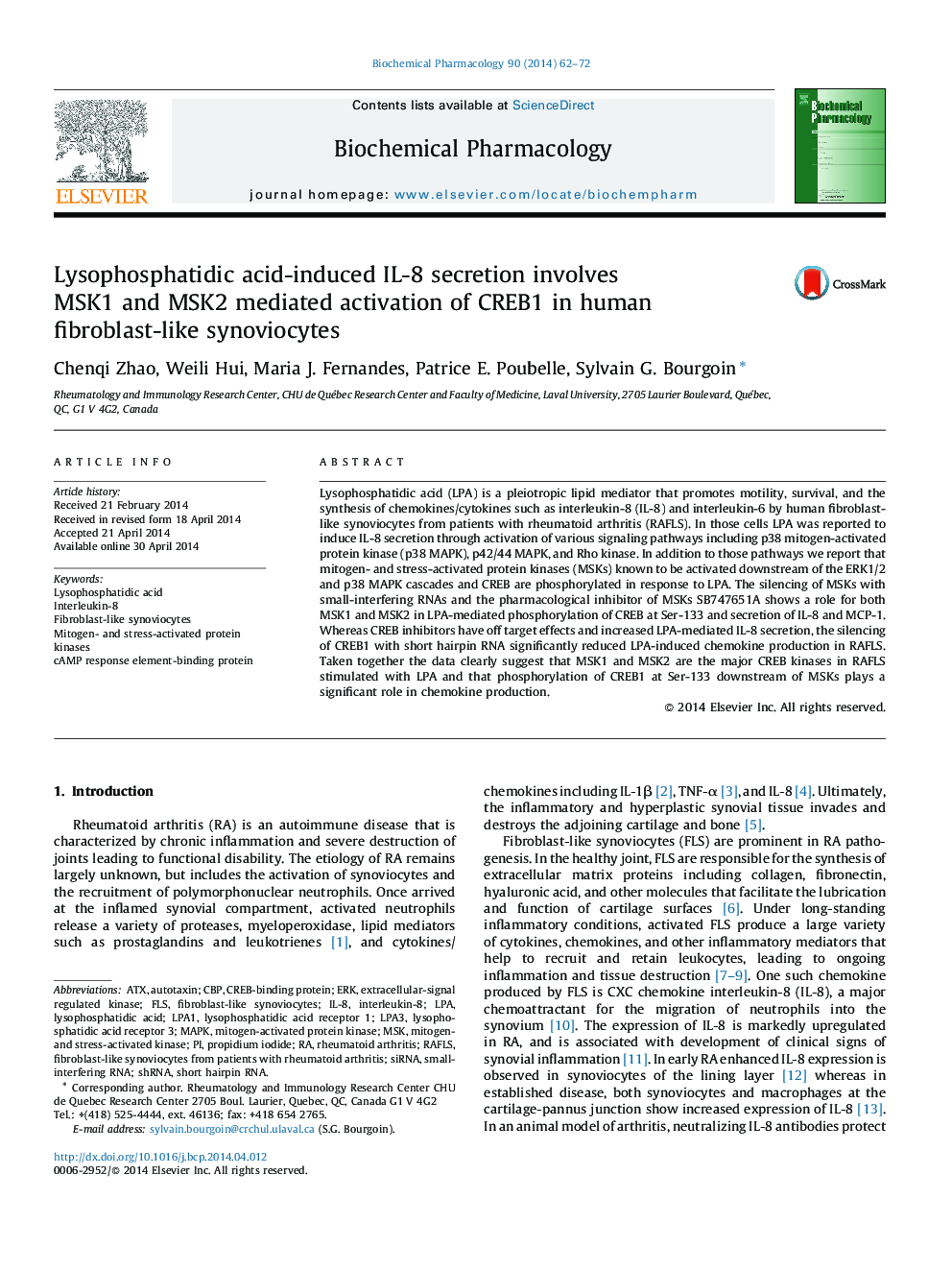| Article ID | Journal | Published Year | Pages | File Type |
|---|---|---|---|---|
| 2512334 | Biochemical Pharmacology | 2014 | 11 Pages |
Lysophosphatidic acid (LPA) is a pleiotropic lipid mediator that promotes motility, survival, and the synthesis of chemokines/cytokines such as interleukin-8 (IL-8) and interleukin-6 by human fibroblast-like synoviocytes from patients with rheumatoid arthritis (RAFLS). In those cells LPA was reported to induce IL-8 secretion through activation of various signaling pathways including p38 mitogen-activated protein kinase (p38 MAPK), p42/44 MAPK, and Rho kinase. In addition to those pathways we report that mitogen- and stress-activated protein kinases (MSKs) known to be activated downstream of the ERK1/2 and p38 MAPK cascades and CREB are phosphorylated in response to LPA. The silencing of MSKs with small-interfering RNAs and the pharmacological inhibitor of MSKs SB747651A shows a role for both MSK1 and MSK2 in LPA-mediated phosphorylation of CREB at Ser-133 and secretion of IL-8 and MCP-1. Whereas CREB inhibitors have off target effects and increased LPA-mediated IL-8 secretion, the silencing of CREB1 with short hairpin RNA significantly reduced LPA-induced chemokine production in RAFLS. Taken together the data clearly suggest that MSK1 and MSK2 are the major CREB kinases in RAFLS stimulated with LPA and that phosphorylation of CREB1 at Ser-133 downstream of MSKs plays a significant role in chemokine production.
Graphical abstractFigure optionsDownload full-size imageDownload as PowerPoint slide
